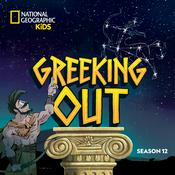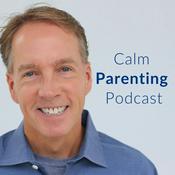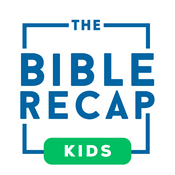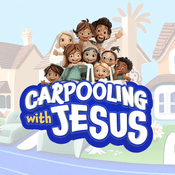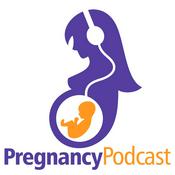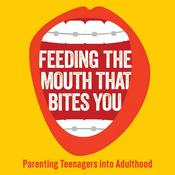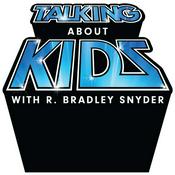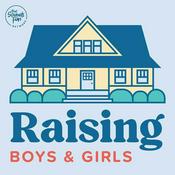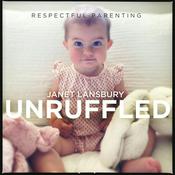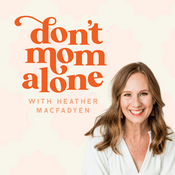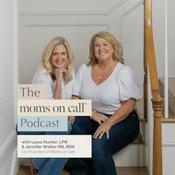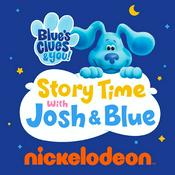833 episodes

Tips for more connected parenting in the new year (Reissue)
1/05/2026 | 13 mins.
701. Hoping to make some positive change in your parent-child relationship in the new year? Dr. Nanika Coor offers some ways to move toward becoming a more connected parent this year! Find a transcript here.Have a parenting question? Email Dr. Coor at [email protected] or leave a voicemail at 646-926-3243.Find Project Parenthood on Facebook and Twitter, or subscribe to the Quick and Dirty Tips newsletter for more tips and advice.Project Parenthood is a part of Quick and Dirty Tips.Links: https://www.quickanddirtytips.com/https://www.quickanddirtytips.com/subscribehttps://www.facebook.com/QDTProjectParenthoodhttps://twitter.com/qdtparenthoodhttps://brooklynparenttherapy.com/ Hosted by Simplecast, an AdsWizz company. See pcm.adswizz.com for information about our collection and use of personal data for advertising.

Should I encourage my family to make New Year’s resolutions?
12/29/2025 | 11 mins.
816. Should you help your family set New Year’s resolutions, or does that pressure do more harm than good? In this episode, Dr. Nanika Coor explores how to approach the new year through the idea of right relationship, offering parents grounded ways to reflect, reset, and grow together without shame, coercion, or perfectionism.Links: www.brooklynparenttherapy.comhttps://www.instagram.com/bkparents/Sources:https://www.soiltjp.org/blog/new-years-resolutions-and-practicing-accountabilityhttps://bob-lynn.medium.com/beyond-resolutions-reimagining-renewal-in-the-modern-age-2efe973fbe0eRelated Project Parenthood episodes:How to reduce parental stress with mindfulnessCalm your nervous system to calm your child How to assert your own needs with your child Dr. Coor’s related blogs: Low-Pressure Parenting: A Universal Approach to Family Mental WellnessBreak Free: Parent Intensives Revitalize TherapyFind a transcript here.Have a parenting question? Email Dr. Coor at [email protected] or leave a voicemail at 646-926-3243.Find Project Parenthood on Facebook and Twitter, or subscribe to the Quick and Dirty Tips newsletter for more tips and advice.Project Parenthood is a part of Quick and Dirty Tips.Links: https://www.quickanddirtytips.com/https://www.quickanddirtytips.com/subscribehttps://www.facebook.com/QDTProjectParenthoodhttps://twitter.com/qdtparenthoodhttps://brooklynparenttherapy.com/ Hosted by Simplecast, an AdsWizz company. See pcm.adswizz.com for information about our collection and use of personal data for advertising.

Connecting to your child with non-violent communication (Reissue)
12/22/2025 | 12 mins.
728. Nonviolent communication, or NVC, is a communication strategy—and also a lens through which you can look at life—that can be used to connect with others and resolve conflict in a respectful and compassionate way.Find a transcript here.Have a parenting question? Email Dr. Coor at [email protected] or leave a voicemail at 646-926-3243.Find Project Parenthood on Facebook and Twitter, or subscribe to the Quick and Dirty Tips newsletter for more tips and advice.Project Parenthood is a part of Quick and Dirty Tips.Links: https://www.quickanddirtytips.com/https://www.quickanddirtytips.com/subscribehttps://www.facebook.com/QDTProjectParenthoodhttps://twitter.com/qdtparenthoodhttps://brooklynparenttherapy.com/ Hosted by Simplecast, an AdsWizz company. See pcm.adswizz.com for information about our collection and use of personal data for advertising.

How do you get your kid to take accountability for their mistakes?
12/15/2025 | 23 mins.
815. Why do kids sometimes get defensive, shut down, or lash out after they’ve made a mistake, broken a rule or hurt someone’s feelings? In this episode, Dr. Nanika Coor explains how to compassionately help children notice their impact without shame, while helping them take meaningful steps toward repairing relationship ruptures through the action-based making of amends. Sources:McCloud, C. (2018). Buckets, dippers, and lids: Secrets to your happiness. Bucket Fillers.Sandland, B. (2025). Neurodivergent Experiences of Rejection Sensitive Dysphoria Expose the Environmental Factors too Often Overlooked. Neurodiversity, 3. https://doi.org/10.1177/27546330251394516Related Project Parenthood Episodes:Stop forcing your child to apologizeRepairing the Break: How to Fix Things with Your KidThe First Step to Solve Child Behavior ProblemsDr. Coor’s Related Blog: A Stitch in Time Saves Nine: Relational Repair After Parent-Child ConflictsFind a transcript here.Have a parenting question? Email Dr. Coor at [email protected] or leave a voicemail at 646-926-3243.Find Project Parenthood on Facebook and Twitter, or subscribe to the Quick and Dirty Tips newsletter for more tips and advice.Project Parenthood is a part of Quick and Dirty Tips.Links: https://www.quickanddirtytips.com/https://www.quickanddirtytips.com/subscribehttps://www.facebook.com/QDTProjectParenthoodhttps://twitter.com/qdtparenthoodhttps://brooklynparenttherapy.com/ Hosted by Simplecast, an AdsWizz company. See pcm.adswizz.com for information about our collection and use of personal data for advertising.

How do you get your kid to speak up for themselves?
12/08/2025 | 12 mins.
814. Is making sure your child isn’t a doormat feel fraught with worry about them being “too aggressive”? In this episode, Dr. Nanika Coor guides parents through the foundational skills of respectful self-advocacy and how to cultivate them in your child, helping your child move through social challenges with more self-understanding and ease.Related Project Parenthood Episodes:Navigating the "cringe": How to parent kids who hate emotionsDitch Roadblocks, Build Connections: Unlocking Effective Communication with Your ChildDr. Coor’s Related Blog: Supporting Your Child’s Self-Worth: A Daily Practice of AcceptanceFind a transcript here.Have a parenting question? Email Dr. Coor at [email protected] or leave a voicemail at 646-926-3243.Find Project Parenthood on Facebook and Twitter, or subscribe to the Quick and Dirty Tips newsletter for more tips and advice.Project Parenthood is a part of Quick and Dirty Tips.Links: https://www.quickanddirtytips.com/https://www.quickanddirtytips.com/subscribehttps://www.facebook.com/QDTProjectParenthoodhttps://twitter.com/qdtparenthoodhttps://brooklynparenttherapy.com/ Hosted by Simplecast, an AdsWizz company. See pcm.adswizz.com for information about our collection and use of personal data for advertising.
More Kids & Family podcasts
Trending Kids & Family podcasts
About Project Parenthood
Listen to Project Parenthood, Brains On! Science podcast for kids and many other podcasts from around the world with the radio.net app
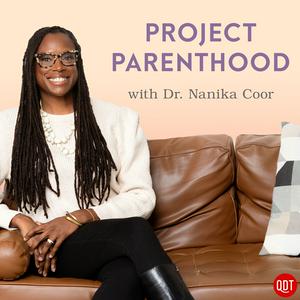
Get the free radio.net app
- Stations and podcasts to bookmark
- Stream via Wi-Fi or Bluetooth
- Supports Carplay & Android Auto
- Many other app features
Get the free radio.net app
- Stations and podcasts to bookmark
- Stream via Wi-Fi or Bluetooth
- Supports Carplay & Android Auto
- Many other app features


Project Parenthood
download the app,
start listening.


